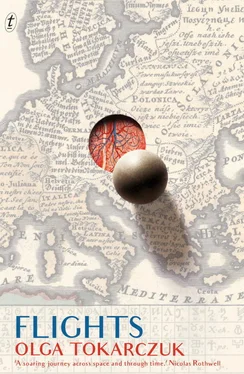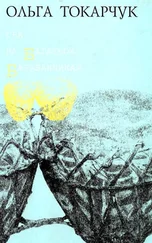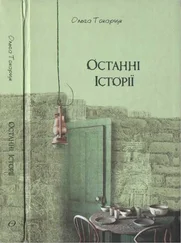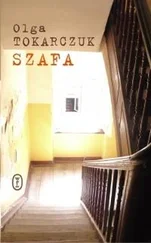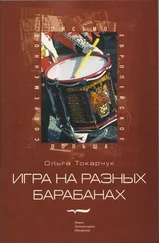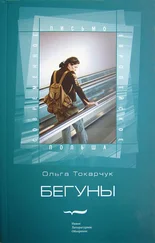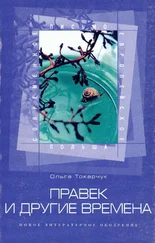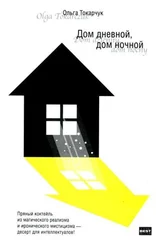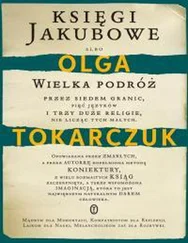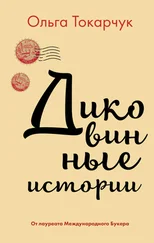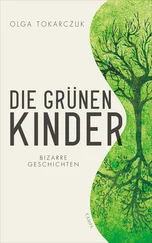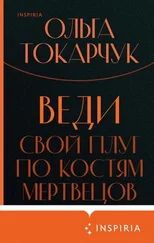I’m a few years old. I’m sitting on the window sill, surrounded by strewn toys and toppled-over block towers and dolls with bulging eyes. It’s dark in the house, and the air in the rooms slowly cools, dims. There’s no one else here; they’ve left, they’re gone, though you can still hear their voices dying down, that shuffling, the echoes of their footsteps, some distant laughter. Out the window the courtyard is empty. Darkness spreads softly from the sky, settling on everything like black dew.
The worst part is the stillness, visible, dense – a chilly dusk and the sodium-vapour lamps’ frail light already mired in darkness just a few feet from its source.
Nothing happens – the march of darkness halts at the door to the house, and all the clamour of fading falls silent, makes a thick skin like on hot milk cooling. The contours of the buildings against the backdrop of the sky stretch out into infinity, slowly lose their sharp angles, corners, edges. The dimming light takes the air with it – there’s nothing left to breathe. Now the dark soaks into my skin. Sounds have curled up inside themselves, withdrawn their snail’s eyes; the orchestra of the world has departed, vanishing into the park.
That evening is the limit of the world, and I’ve just happened upon it, by accident, while playing, not in search of anything. I’ve discovered it because I was left unsupervised for a bit. I’ve clearly found myself in a trap now, and I can’t get out. I’m a few years old, I’m sitting on the window sill, and I’m looking out onto the chilled courtyard. The lights in the school’s kitchen are extinguished; everyone has left. All the doors are closed, hatches down, blinds lowered. I’d like to leave, but there’s nowhere to go. My own presence is the only thing with a distinct outline now, an outline that quivers and undulates, and in so doing, hurts. And all of a sudden I know: there’s nothing anyone can do now, here I am.
The first trip I ever took was across the fields, on foot. It took them a long time to notice I was gone, which meant I was able to make it quite some distance. I covered the whole park and even – going down dirt roads, through the corn and the damp meadows teeming with cowslip flowers, sectioned into squares by ditches – reached the river. Though of course the river was ubiquitous in that valley, soaking up under the ground cover and lapping at the fields.
Clambering up onto the embankment, I could see an undulating ribbon, a road that kept flowing outside of the frame, outside of the world. If you were lucky, you might catch sight of a boat there, one of those great flat boats gliding over the river in either direction, oblivious to the shores, to the trees, to the people who stand on the embankment, unreliable landmarks, perhaps, not worth remarking, just an audience to the boats’ own motion, so full of grace. I dreamed of working on a boat like that when I grew up – or even better, of becoming one of those boats.
It wasn’t a big river, only the Oder, but I, too, was little then. It had its place in the hierarchy of rivers, which I later checked on the maps – a minor one, but present, nonetheless, a kind of country viscountess at the court of the Amazon Queen. But it was more than enough for me. It seemed enormous. It flowed as it liked, essentially unimpeded, prone to flooding, unpredictable. Occasionally along the banks it would catch on some underwater obstacle, and eddies would develop. But the river flowed on, parading, concerned only with its hidden aims beyond the horizon, somewhere far off to the north. Your eyes couldn’t keep focused on the water, which pulled your gaze along up past the horizon, so that you’d lose your balance.
To me, of course, the river paid no attention, caring only for itself, those changing, roving waters into which – as I later learned – you can never step twice.
Every year it charged a steep price to bear the weight of those boats – because each year someone drowned in the river, whether a child taking a dip on a hot summer’s day or some drunk who somehow wound up on the bridge and, in spite of the railing, still fell into the water. The search for the drowned always took place with great pomp and circumstance, with everyone in the vicinity waiting with bated breath. They’d bring in divers and army boats. According to adults’ accounts we overheard, the recovered bodies were swollen and pale – the water had rinsed all the life out of them, blurring their facial features to such an extent that their loved ones would have a hard time identifying their corpses.
Standing there on the embankment, staring into the current, I realized that – in spite of all the risks involved – a thing in motion will always be better than a thing at rest; that change will always be a nobler thing than permanence; that that which is static will degenerate and decay, turn to ash, while that which is in motion is able to last for all eternity. From then on, the river was like a needle inserted into my formerly safe and stable surroundings, the landscape comprised of the park, the greenhouses with their vegetables that grew in sad little rows, and the pavement with its concrete slabs where we would go to play hopscotch. This needle went all the way through, marking a vertical third dimension; so pierced, the landscape of my childhood world turned out to be nothing more than a toy made of rubber from which all the air was escaping, with a hiss.
My parents were not fully the settling kind. They moved from place to place, time and time again, until finally they paused for longer near a country school, far from any proper road or a train station. Then travelling simply became crossing the unploughed ridge between the furrows, going into the little town nearby, doing the shopping, filing paperwork at the district office. The hairdresser on the main square by the Town Hall was always there in the same apron, washed and bleached in vain because the clients’ hair dye left stains like calligraphy, like Chinese characters. My mum would have her hair dyed, and my father would wait for her at the New Café, at one of the two little tables set up outside. He’d read the local paper, where the most interesting section was always the one with the police reports, gherkins and jam jars stolen out of cellars.
And then the holidays, their timid tourism, their Škoda packed to the gills. Endlessly prepared for, planned in the evenings in the early spring when the snow had all but stopped, though the ground had yet to come back to its senses; you had to wait until it finally gave itself to plough and hoe, when you could plant in it again, and from that moment forward it would take up all their time, from morning to eve.
Theirs was the generation of motor homes, of tugging along behind them a whole surrogate household. A gas stove, little folding tables and chairs. A plastic cord to hang laundry up to dry when they stopped and some wooden clothes pegs. Waterproof tablecloths. A ready-made picnic set: coloured plastic plates, utensils, salt and pepper shakers, and glasses.
Somewhere along the way, at one of the flea markets that he and my mother particularly loved to visit (since they were not interested, for instance, in having their pictures taken at churches or monuments), my father had purchased an army kettle – a brass device, a vessel with a tube in the middle that you would fill up with tinder you lit on fire. Though you could get electricity at the campsites, he would heat up water in that smoking, spluttering pot. He’d kneel down over the hot kettle, taking no small pride in the gurgle of the boiling water he’d then pour over our tea bags – a true nomad.
Читать дальше
